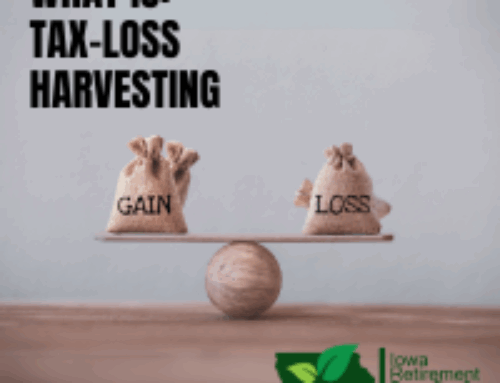The Price of Procrastination
Posted by Jeff Carey
Serving Cedar Rapids, Iowa, and Surrounding Areas.
The Price of Procrastination: Why Waiting Costs You More Than You Think
The “cost of waiting” refers to the potential financial consequences or missed opportunities that arise when delaying a decision or action. This concept is often applied in various contexts, including retirement planning, investments, and insurance. Here are some examples of the cost of waiting in these areas:
1. Retirement Savings
-Lost Compound Growth: If you delay saving for retirement, you miss out on the compound interest or growth that could have accumulated over time. Even a few years of delay can significantly impact the size of your retirement fund due to the exponential growth of
compound interest.
For example, if you invest $10,000 at a 6% annual return at age 25, by age 65 it could grow to over $100,000. If you wait until age 35 to invest the same $10,000, it might only grow to around $57,000 by age 65.
-Higher Contribution Requirements: Waiting to start saving means you may need to contribute more later in life to reach your desired retirement goal, adding financial pressure.
2. Investments
-Missed Market Opportunities: If you delay investing, you could miss out on potential gains in the stock market or other investment opportunities. Over time, markets tend to grow, and waiting too long might mean missing out on growth periods.
-Higher Prices: In real estate or stocks, waiting too long could result in higher prices, which means you’ll need more money to buy the same asset later. 
3. Insurance (Life, Health, Long-Term Care)
-Increased Premiums: Insurance premiums generally increase as you age or as your health changes. By waiting, you may have to pay higher premiums or be at risk of being denied coverage.
-Risk of Uncovered Events: Waiting to get insurance could leave you exposed to financial risk if a health issue or accident occurs before coverage is secured.
4. Missed Employer Contributions
-Many retirement plans, such as 401(k)s, offer employer matching contributions. If you delay contributing, you may miss out on free money that could otherwise boost your retirement savings.
5. Social Security
-Delayed Benefits: If you wait to claim Social Security benefits, the amount you receive each month will increase (up to age 70). However, waiting also means you miss out on years of potential income, and it could take several years to break even compared to claiming earlier.
6. Pension Plans
-Reduced Payouts: Some pension plans offer lower monthly payouts if you retire earlier. However, waiting to retire or delaying pension payouts could result in a larger monthly payment, but the total lifetime benefit depends on how long you live.
7. Inflation Risk
-Waiting to invest can also expose you to greater inflation risk. The longer your money stays uninvested, the more purchasing power it can lose due to inflation. Over time, inflation erodes the value of money, meaning that your savings will need to grow even faster to keep up.
In short, the cost of waiting can lead to a smaller retirement nest egg and a higher financial burden later on. Starting sooner, even with smaller amounts, can significantly enhance your retirement security.
Remember the closer you are to retirement, the less time you have to recover from potential market downturns. By starting earlier, you have more flexibility to take on higher risk for higher returns, while waiting means you may need to take a more conservative approach, limiting your growth potential.
You can address the cost of waiting with a free and confidential strategy discussion simply Click Here to Contact Us. You can also email us directly at info@iowaretirementsolutions.com or by phone at 319-423-3332.
Whenever you need us, we’re here for you!
Investment advisory services are offered through Fusion Capital Management, an SEC registered investment advisor. The firm only transacts business in states where it is properly registered or is excluded or exempted from registration requirements. SEC registration is not an endorsement of the firm by the commission and does not mean that the advisor has attained a specific level of skill or ability. All investment strategies have the potential for profit or loss.




